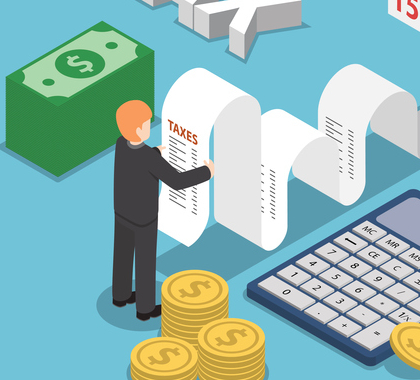On the heels of the Tax Cuts and Jobs Act, Minnesota’s Governor Mark Dayton is proposing to fund at least part of his $46 billion, two-year budget proposal with about $320 million of state tax increases. Much of it would come from higher business taxes, user fees, licensing fees, and reversal of excise tax cuts and business property tax cuts that were enacted last year. Dayton says tax increases on businesses will “pay for” tax cuts for low-income citizens.
This statement shows just how twisted the thinking is of those on the Left. The Governor and those of his ilk believe that the state’s income belongs to the government. When they give some income back to those who earned it that somehow constitutes a government “expense.” The “expense” then must be “paid for” through tax increases elsewhere.
In the real world, you don’t incur an “expense” for lost income. Instead, when your income drops, you must adjust your spending to balance the loss. You don’t have the luxury of arbitrarily imposing burdens on some third party to make up the loss.
What the Governor and his ilk do not understand is that there is no such thing as “government” money. There is only “taxpayers'” money. Government gets money by taking it from those who earned it. Our state’s income producers own the money, not the state. Allowing people to keep more of what they earn is simply not an “expense” the state must “pay for.”
The Governor’s state revenue commissioner claims “No wage earners will pay any higher taxes because of this.”
This is another area where Leftist thinking is just wrong. First of all, when you cut taxes for one group then raise them on another you have not cut taxes. You’ve just shifted the burden. Contrary to the Governor’s worldview, taxes on businesses do in fact have a direct impact on the cost of living for all citizens, including low-income people whose cause he purports to champion.
Higher business taxes increase the cost of doing business in Minnesota. That means all products and services offered to Minnesota consumers cost more to buy; ergo, taxes increase the cost of living. That cost is born by wage earners as well as everybody else.
Tax Foundation studies have proven for decades that states with the lowest personal and corporate tax burdens experience greater growth in personal income, population, labor force, overall economic growth (measured by state gross domestic product), and yes, even tax revenue, than do the highest taxed states (Minnesota among them).
The fact is life is that taxes make you poorer. If Governor Dayton really wants to help low-income people, he should stop raising taxes—period.
[Originally Published at Steemit]





